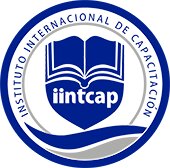Best Climate Change Law Lawyers in Dominican Republic
Share your needs with us, get contacted by law firms.
Free. Takes 2 min.
Or refine your search by selecting a city:
List of the best lawyers in Dominican Republic
About Climate Change Law in Dominican Republic
Climate Change Law in the Dominican Republic refers to the body of statutes, regulations, and policies designed to address climate change within the country. As a signatory to international agreements like the Paris Agreement, the Dominican Republic has committed to taking actions to reduce greenhouse gas emissions, promote sustainable development, protect natural resources, and increase resilience to the impacts of climate change. Local laws support these commitments through specific environmental conservation measures and the regulation of industrial activities. The legal framework continues to evolve as the government updates its strategies for climate mitigation and adaptation.
Why You May Need a Lawyer
Climate Change Law is a specialized and complex field that often intersects with other areas of law, including environmental, energy, agricultural, and commercial law. You may need legal assistance in situations such as:
- Complying with environmental standards or climate-related regulations for your business or development project.
- Applying for permits related to emissions, waste management, or water usage.
- Dealing with disputes or penalties arising from alleged violations of climate legislation.
- Engaging in land use planning, sustainability initiatives, or renewable energy projects.
- Protecting your property or community from environmental harm linked to climate change impacts.
- Participating in carbon trading schemes or other market mechanisms established under climate agreements.
- Understanding your rights and obligations under new policies or international commitments adopted by the Dominican government.
A lawyer can provide valuable guidance, represent you in administrative processes, and help you navigate changing regulations effectively.
Local Laws Overview
The Dominican Republic has developed a framework of environmental and climate-related laws designed to address both mitigation of and adaptation to climate change. Key aspects include:
- General Law on Environment and Natural Resources (Law No. 64-00) - Sets the overall environmental policy, establishing the Ministry of Environment and Natural Resources as the leading authority. This law addresses pollution control, biodiversity conservation, sustainable resource use, and environmental impact assessments.
- National Climate Change Policy - Provides guidance for the country’s response to climate change, covering emission reductions, adaptation strategies, and green development goals.
- Regulations on Emissions and Air Quality - Establishes limits and monitoring requirements for air pollutants and greenhouse gas emissions from various sectors.
- Renewable Energy Incentives (Law No. 57-07) - Promotes the development and use of renewable energy sources, including solar, wind, and hydroelectric power, through fiscal and regulatory incentives.
- Disaster Risk Management Plans - Focus on reducing vulnerability and strengthening resilience to natural hazards that are exacerbated by climate change, such as hurricanes and flooding.
- International Commitments - The Dominican Republic actively participates in multilateral agreements aimed at curbing climate change, and much of its legislation aligns with these obligations.
Compliance with these laws is mandatory for individuals and organizations. Government agencies enforce them through permitting, supervision, and sanctions for non-compliance.
Frequently Asked Questions
What is the main environmental law concerning climate change in the Dominican Republic?
The General Law on Environment and Natural Resources (Law No. 64-00) is the principal legal framework for environmental protection, including issues related to climate change.
Who oversees climate change policy and enforcement in the country?
The Ministry of Environment and Natural Resources is responsible for developing, implementing, and enforcing climate change policies and regulations.
Are there incentives for businesses to adopt green practices?
Yes, businesses can benefit from incentives under laws such as Law No. 57-07 on Renewable Energy, which provides tax breaks and support for renewable energy adoption.
Do construction and development projects need to consider climate change?
Absolutely. Projects must undergo environmental impact assessments, which include evaluating risk and adaptation measures for climate-related threats.
What are common penalties for violating climate change or environmental laws?
Penalties may include fines, suspensions, or closure of operations, depending on the severity and nature of the violation.
Can local communities participate in environmental decision-making?
Yes. The law provides for public participation in environmental impact assessments and community consultation for major projects.
Are there obligations for reporting greenhouse gas emissions?
Certain sectors are required to report emissions as part of compliance with national and international obligations.
How does climate change law affect property owners?
Property owners may face restrictions on land use, requirements for risk mitigation, or obligations to maintain natural features that provide environmental benefits.
Is litigation possible in cases of environmental damage linked to climate change?
Yes, individuals or communities can seek legal remedies, including compensation or restoration, through administrative or judicial processes.
Do international agreements directly impact local laws?
Yes. The government integrates obligations from agreements like the Paris Accord into domestic law, affecting regulatory requirements and policy direction.
Additional Resources
If you need more information or wish to stay updated on climate change law issues in the Dominican Republic, consider these resources:
- Ministry of Environment and Natural Resources - The main governmental body overseeing climate-related policies and regulations.
- National Council for Climate Change and Clean Development Mechanism - A special body coordinating national policy and climate initiatives.
- Environmental NGOs - Organizations such as Grupo Jaragua and the Dominican Environmental Consortium can provide guidance and community support.
- Local Bar Associations - Offer directories of attorneys specialized in environmental and climate change law.
- Academic Institutions - Many universities offer research, seminars, and public guidance on climate law topics.
Next Steps
If you believe you need legal assistance in the field of Climate Change Law, follow these steps:
- Gather all relevant documents and details about your issue or project.
- Identify whether your concern relates to compliance, permitting, community rights, enforcement, or another aspect of climate law.
- Contact a qualified lawyer experienced in environmental or climate change law in the Dominican Republic. Consider asking your local bar association for a referral.
- Prepare your questions in advance and seek advice on your rights, obligations, and the best course of action.
- Stay informed about relevant legal updates and changes in climate policy that may affect your situation.
Taking prompt legal advice will help you comply with regulations, protect your interests, and contribute toward national and community climate goals.
Lawzana helps you find the best lawyers and law firms in Dominican Republic through a curated and pre-screened list of qualified legal professionals. Our platform offers rankings and detailed profiles of attorneys and law firms, allowing you to compare based on practice areas, including Climate Change Law, experience, and client feedback.
Each profile includes a description of the firm's areas of practice, client reviews, team members and partners, year of establishment, spoken languages, office locations, contact information, social media presence, and any published articles or resources. Most firms on our platform speak English and are experienced in both local and international legal matters.
Get a quote from top-rated law firms in Dominican Republic — quickly, securely, and without unnecessary hassle.
Disclaimer:
The information provided on this page is for general informational purposes only and does not constitute legal advice. While we strive to ensure the accuracy and relevance of the content, legal information may change over time, and interpretations of the law can vary. You should always consult with a qualified legal professional for advice specific to your situation.
We disclaim all liability for actions taken or not taken based on the content of this page. If you believe any information is incorrect or outdated, please contact us, and we will review and update it where appropriate.
Browse climate change law law firms by city in Dominican Republic
Refine your search by selecting a city.














